#PhD guidance
Text
Don't let the distance between where you are and where you want to be scare you out of moving forward.
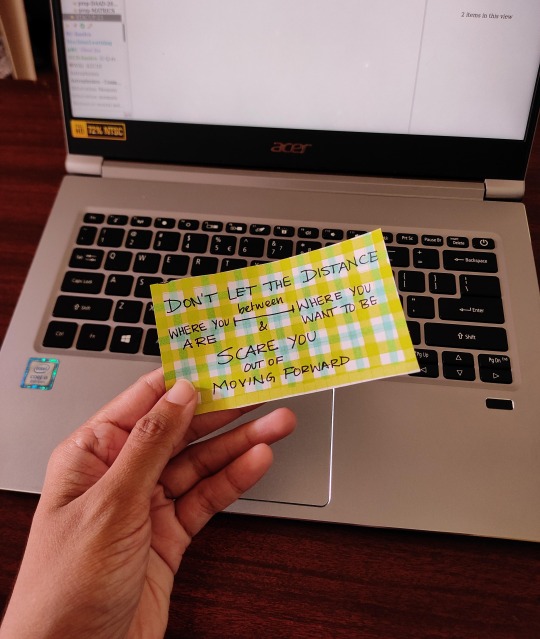
But how?
This fear is like gravity. I can't feel it pulling me down, it is not prominent. It is not in the top of my head and making me fret every moment. It is not crushing or intense, it is not making me implode.
But it is there. It is keeping me from moving. I am paralyzed without even realizing. It has stopped me from being hopeful, or even looking at the future.
What's the cause? The distance between where I am and where I want to be, rather where I have to be. It is so far because I lagged behind once. And I am lagging behind still because the distance is daunting me now.
It's a loop. One thing feeds the other and vice versa. As time passes, the distance just keeps growing and I am standstill right where I was a year ago. And with the distance grows the fear. I get anxious more and more, and even simple tasks feel monstrous now. It is only a matter of time for me to succumb into the loop: to spiral into a blackhole.
How do I get out of this loop? How do I break this loop? How do I not let the distance scare me?
Right now, I am all questions and no answers. I am writing this blog post to lift some weight off my chest and put it out in the open.
What helps you in such moments? Have you escaped the loop before? Or, are you too stuck in a loop like me?
#chaotic academia#gradblr#gradschool aesthetic#dark academia#studysthetics#uniblr#stemblr#physics phd#phd life#phdjourney#phd student#grad school#dissertation#university#academics#phdblr#phd guidance#phd stuff#phd tips#graduate school#phd anxiety#mental health in academia#fear of failure#phd problems#research process#advice for self
29 notes
·
View notes
Text

Big life update: I got a Doctorate in Bioengineering. This woman of color made it. Against all doubters, haters, with all odds stacked against her.
#daily life#first generation#phd candidate#phd guidance#phd research#phd stuff#phd diary#life update#stem academia#stem major#engineering#biomedical#biomedicine
23 notes
·
View notes
Text
8 Top Tips and Pieces of Advice for New PhD Students
PhD imposter syndrome is far more common than you might realize. Feelings of self-doubt and inadequacy are completely valid and can make you feel as though you shouldn’t be studying for a Ph.D. Imposter syndrome manifests differently for everyone – and is something Áine has experienced herself.
IMPOSTER SYNDROME IS REAL
“Imposter syndrome is real and pretty much everyone experiences it at some point. I find it helps to open up about it to peers as you realize others feel the same way.”
Which leads us to Áine’s next piece of advice…
‘Don’t compare your PhD project to other people's
“Don’t compare your PhD project to other people’s. They are all different, so don’t worry if you have more or fewer data, papers, and experience than your peers. You were accepted onto the program because you deserve to be there!”
A PhD is a massively steep learning curve. Whether you’ve got your heart set on a PhD in Accounting & Finance, Biomedical Engineering, Environmental Sustainability, Media & Cultural Policy, or Planetary Science like Áine, looking around and comparing yourself to others never helps – especially when everyone is on their own PhD journey. Managing your expectations, as well as having the right attitude and work ethic to keep yourself moving forward is important.
‘Be super organized!’
Establishing a routine and dedicated workspace free from distractions with access to the right resources and tools is the golden rule, and can really help lay the groundwork for success.
From the get-go, calendars, diaries, planners, and to-do lists will be your BFFs throughout your PhD. You are ultimately responsible for the planning and management of your studies. Although it may seem obvious, it’s not uncommon to find yourself suddenly struggling to keep track of whats-what – something which Áine wish she’d thought about at the start of her PhD.
“I have dozens of notebooks from loads of meetings, experiments and conferences and I am terrible at keeping track of what information is in which notebook. I wish I had made a system for this as it would have saved me so much time now!”
‘Build yourself a research network’
It doesn’t matter what your research area is, or where in the world you’re studying, networking is a huge part of your PhD. Attending and participating in local and international events, such as conferences, seminars, lab meetings, and even graduate school sessions are a great way to build and maintain professional and social relationships.
“Be it online or not, be it in your research group, research department or not, find peers in the same boat with a little more experience than you who you feel comfortable talking to,” explains Áine.
‘Make use of your university’s student counseling service if there is one
PhDs demand long hours, with massive amounts of reading, researching, and writing which can understandably result in high levels of stress. Checking in with yourself on a regular basis is important. Be open and honest, and don’t feel like you’re on your own, whatever your worries or concerns may be.
“Over half of PhD students experience poor mental health symptoms during their PhD. If this happens to you, make use of your university’s student counselling service if there is one, learn to notice the signs that you’re struggling and give yourself a break.”
The University of Glasgow, offers a wide range of support services, including a dedicated Wellbeing service which students can access as little or as much as they like.
‘Don’t feel pressured to work 24/7’
“Some people in academia work really long days seven days a week and that just isn’t me,” says Áine. “Early on I was really worried I was going to fail because other people around me were working such long hours, and I told my supervisor this was worrying me, and she was really helpful in encouraging me to have a work-life balance.”
Having a good work-life balance is essential. You’re allowed to have a life away from your PhD, so make time to organize fun and exciting plans with friends and family in between reading sessions, research, seminars and meetings with your supervisor.
‘Don’t worry if your project changes as you progress
“Don’t worry if your project changes as you progress, and when that happens, don’t be concerned if you feel a bit lost and unsure as to what’s happening,” says Áine. “Doing a PhD means contributing to knowledge and so it’s totally normal for what you might contribute to change as you go through.”
You’re challenging existing beliefs and customs, all while developing new ways of thinking. Remember you’ve chosen to study a PhD to make a significant contribution to your field
Regularly check in and assess where you are in your schedule, but keep in mind that encountering problems and new developments are inevitable. Accepting that your initial plan of action may change is also ok.
Contact us for the best SciEditHub Editors
16 notes
·
View notes
Text
Calling all the pdh students!!
I need help from anyone currently doing their thesis or that has done it...how do you decide on a topic?
This feels like a silly question but I was given very incomplete and, in some aspects, completely wrong information about my final project and only now did I discover I have to do the thesis no matter what. However I don't really know how to go about deciding on a topic that's good enough for something this serious!
People keep telling me to work on something I'm passionate about but to be completely transparent my interests don't intertwine themselves with my area as weird as that might sound, so if anyone has any other help like where and how to find research gaps in different areas, how to understand if something might be considered relevant etc I'd be extremely grateful to hear it💫
#masters student#mastersdegree#phd#phdblr#phd student#phd guidance#phd help#phd life#university#university help#student help
5 notes
·
View notes
Text
Academic writing services
Discover excellence in academic writing services at PhD Guides. Our platform offers comprehensive assistance and guidance to students pursuing their Ph.D. journey. From crafting meticulously structured thesis to refining research papers, dissertations, etc. our expert advisors provide invaluable support to enhance the clarity, coherence, and quality of your scholarly work.
2 notes
·
View notes
Text

𝟔 𝐖𝐑𝐈𝐓𝐈𝐍𝐆 𝐓𝐈𝐏𝐒 𝐅𝐎𝐑 𝐏𝐇𝐃 𝐏𝐑𝐎𝐏𝐎𝐒𝐀𝐋
.
I help researchers increase engagement with their work. Together we will transform your ideas into unique and intuitive graphics with my reliable process:
1-Pinpoint your goals
2-Sketch and prototype
3-Discuss and iterate
4-Goal accomplished
.
𝐇𝐈𝐑𝐄 𝐌𝐄 (DM Your Projects)
.
💎Here to HELP You:
✔️Graphical Abstract Design
✔️Journal Figures Design
✔️Scientific Illustration
✔️Flyer and Poster Design
✔️Infographic Design
✔️Slides Design
#phd#phd stuff#phd student#phdresearch#phd guidance#phd thesis writing service#phd life#thesis#research#research paper#dissertation#phd full form#graphic design#illustrations#biotechnology#biotech#biology#biochemistry#studyblr#molecularbiology#open commissions#commission#commission art
12 notes
·
View notes
Text
Research methodology
Research methodology is a technique employed to identify, select, process, and analyze information about a research topic
5 notes
·
View notes
Text
phd candidates, what do you use to help develop a schedule/stay on track for writing/research? are there any good websites for this?
2 notes
·
View notes
Text

Primary Human Epidermal Keratinocytes, adult (C-005-5C)
Thaw procedure
Reagents (do not warm in water bath):
50mL Epilife medium (M-EPI-500CA)
500uLHuman Keratinocytes Growth Supplement (S-005-1)
Steps
Prepare a 37C water bath for the thawing of cryopreserved primary cells.
Sterilize tissue culture hood with 75% alcohol.
Mix the two reagents (do not warm in water bath) in laminar flow culture hood and pour 7mL into a 10cm plate (Corning). Label with date, cell type, passage number, and your name.
Thaw the primary cells in 37C water bath with gentle agitation (around 1 to 2 minutes). Do not thaw thoroughly, a movable sliver of ice should still be seen in the cryogenic tube. Wipe cryogenic tube with 75% alcohol.
Transfer thawed primary cells into plate in laminar flow culture hood.
Use 500uL of fresh medium to wash cryogenic tube by pipetting up and down. Transfer medium into plate.
Store cell in a humidified 37C incubator with 5% CO^2, 95% air.
Do not disturb cell for at least 24 hours before changing cell media the next day by aspirating media then pouring in 7.5mL of fresh media.
They should have a cobblestone appearance, as shown in the picture below.
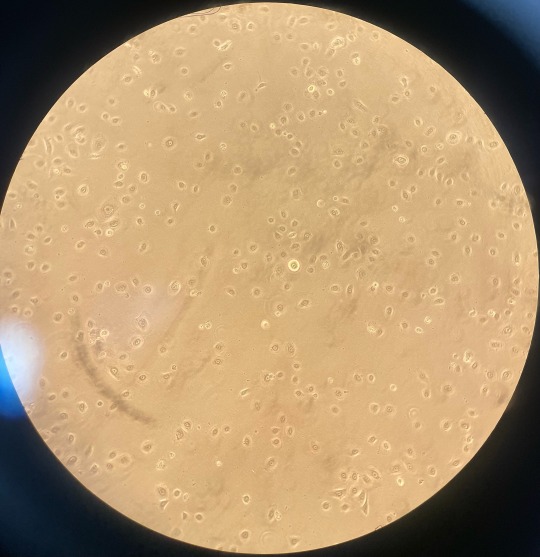
Maintenance procedure
Reagents (do not warm in water bath)
Maintenance medium (Epilife + HKGS)
Reminder
Change media every other day until 85% confluence.
Subculture procedure
Reagents
Trypsin/EDTA solution 0.025%
Maintenance media (Epilife medium + HKGS)
Trypsin Neutralizer Solution,TNS (R-002-100)
Steps
Thaw TNS in 37C water bath, and take out when thawed to cool off.
Sterilize tissue culture hood with 75% alcohol.
Move culture plate to laminar flow culture hood, aspirate medium.
Wash cells with 1mL trypsin/EDTA solution, remove solution after ensuring that entire surface was covered.
Add 1mL trypsin/EDTA and incubate at room temperature for approximately 8 to 10 minutes (check every 4 minutes) until the cells are completely round.
Check under microscope and lightly rap/tap under and on the sides of the the plate to dislodge cells.
When cells are detached, tilt the plate a little and add 3mL TNS into plate. “Wash” cells by gently pipetting solution over the plate several times.
Transfer solution into a sterile 15mL conical tube.
Add 3mL of fresh TNS into plate while tilting the plate. Repeat “wash” action, and transfer solution to the 15mL conical tube. A total of 7mL of solution should be in the 15mL conical tube.
Centrifuge cells at 180g (or 1268rpm for a 100mm radius motor) for 7 minutes.
Observe pellet, then remove supernatent gently from tube.
Resuspend cells gently in maintenance medium by pipetting up and down for a homogenous mixture.
Determine concentration of cells in suspension.
Seed new culture plate with at least 2.5x10^3cells/cm^2.
Incubate in humidified incubator at 37C, with 5% CO^2 and 95% air.
Cryopreserving procedure
Reagents
Trypsin/EDTA 0.025%
CryoStor CS10 Cell Crypreservation Media (C2874)
Maintenance medium (Epilife medium + HKGS)
Steps (if you would like to cryoperserve a tube and continue on with culturing)
Ensure 95% confluency of cells.
Follow “Subculture procedure” steps 1 to 9.
Transfer 4mL of solution to conical tube 2 and centrifuge both tubes at 180g (1268rpm for a 100mm radius motor).
Aspirate solution from both tubes.
Add 1mL to 2 mL cold CryoStor solution to conical tube 1 (previously with 3mL trypsin/EDTA/TNS solution) and resuspend pellet by gentle pipetting. Transfer solution to cryogenic tube and store in -80C overnight before transferring cryogenic tubes to liquid nitrogen.
Resuspend conical tube 2 (previously with 4mL trypsin/EDTA/TNS solution) with maintenance medium and add back to plate with fresh maintenance medium. Incubate plate in humidified incubator at 37C with 5% CO^2 and 95% air.
I guess that’s it for HEKa cell culture. If you have any questions relating to my protocol or otherwise, feel free to DM me 💖
#university#studyspiration#study hard#study blog#studygram#study#studyabroad#studyspo#studyblr#study notes#phdblr#phd research#phd struggles#phdjourney#phd life#phd stuff#phd student#phd guidance#phd studyblr#protocol#protocols#phdracconprotocol#biomedical#science#biomedicine#primary cell#keratinocytes#epidermis
2 notes
·
View notes
Text
PhD Admission: The Opportunity Came To Do PhD In Canada, Details Here
The opportunity came to do PhD in Canada. If you want to do PhD in Toronto Metropolitan University, Canada, you can apply. For details please click the below link..
https://www.phdpostdocjob.com/2024/04/phd-admission-opportunity-in-canada.html
0 notes
Text
PhD Help provides comprehensive support in creating exceptional papers for your doctorate. Further, our pool of expertise can enable you to make it through your research without a snag.
For more info:
http://phdhelp.co/
+91 9944776629

#phd assistance#phd research#phd guidance#best phd assistance in india#phd scholars#phd service#research papers writing#research proposal writing services#journal publication#thesis writing#phd guides#phd help
0 notes
Text
July Goals
Work with more focus and become competent in one chosen skill
Read more articles and take complete notes regularly
Spend the first few hours of the day for your PhD
Deep work for 4 hours everyday - no distractions, devices or people
Mark the end of workday with a ritual
Spend an hour device-free before going to bed
Wake up early and have a relaxed, slow morning
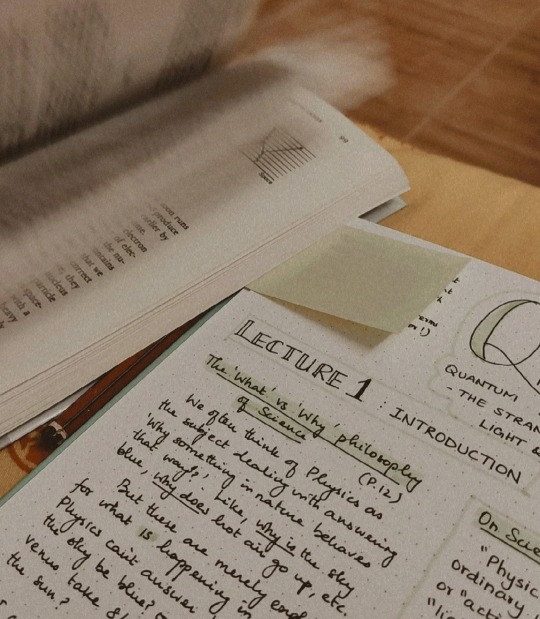
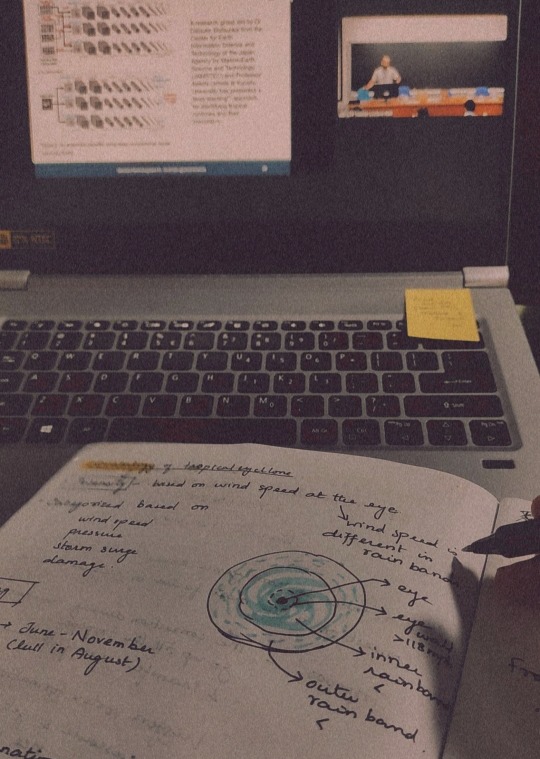
#phd tips#phd life#phd student#phd guidance#phdjourney#phd stuff#phd planning#planning tools#routine#july#July goals#Monthly goals#dark academia#chaotic academia#dark acadamia aesthetic#gradblr#gradschool aesthetic#chaotic academic aesthetic#phd aesthetic#phd scholar#phdblr#grad school motivation
120 notes
·
View notes
Text

0 notes
Text
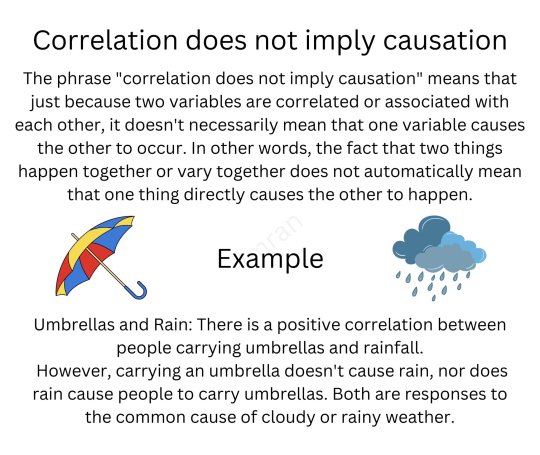
You must have heard, “correlation does not imply causation” but what does it mean in research? Let's understand this with a simple example:
0 notes
Text
#PhD Assistance#PhD guidance#PhD Thesis writing Service#PhD Writing Service#Research#PhD topics#PhD#research paper#PhD in India#PhD in Chennai#Thesis
0 notes
Text
5 BENEFITS OF DOING A PHD IN MANAGEMENT

A PhD in Management can help you achieve your professional and personal aspirations, regardless of whether you're considering a career in academia, attempting to advance in your present job, or looking to solve new management difficulties.
Although earning a PhD in management is not an easy task, the advantages of doing it can be significant. It is the greatest level of education that is available and is regarded as a sign of commitment and knowledge by companies.
Below can be regarded as the 5 benefits of doing PhD in Management -
Research
Research is the core component of a PhD. With all that motivation and training, one will become very good at it without a doubt. It would help one to:
Take on unanswered questions.
Identify the information that might be required to answer those questions.
Choose the best methodology to gather and analyze the data.
Having the capacity to present your results efficiently and effectively to a relevant audience.
Craft a business play that requires strong research skills in designing and development as well as the business’s marketing and operation.
It takes tremendous knowledge to identify a new market and audience. With a doctorate, you can train potential employees of the company on how to conduct outstanding research.
Public speaking
As a PhD scholar, you would need to present your ideas to a substantial knowledgeable audience where you would be questioned and critiqued on your decisions and the outcome of those decisions.
Throughout the course of their study, one may also have to communicate with a diverse group of people with differing levels of expertise and perspective. They will gain confidence in handling knowledge dissemination through this process, which will also improve their public and professional speaking abilities.
In business and management courses, it is important to teach students how to conduct themselves professionally in public. In a professional situation, this will assist many people in clearly expressing their ideas and opinions.
Become a better thinker
The best PhD in Management teaches you how to produce information instead of just encouraging you to consume it. You will develop new levels of critical thinking by moving past passive learning, which you may then apply in new and interesting ways in your field of study, organization, and profession.
Boost your salary and job expectations
It only seems fair that if you have a special set of skills, your pay should reflect that. PhD graduates often earn more money than people with master's degrees in all fields. Additionally, the knowledge you acquire while earning your degree may make you aware of opportunities you previously wouldn't have considered.
Adaptability
A PhD in Management will really put a person's adaptability and flexibility to the test because practically everyone will encounter difficult circumstances while working on their thesis. Adaptability is the key to being a successful professional and moving forward in the world of business and management. These skills, which PhD candidates naturally possess and that they have acquired rather than learnt, will be passed on to the employees and will significantly add to their skill set, which will be beneficial to both their professional and personal lives.
Therefore, PhD in Management graduates are more prepared for the business world than even holders of standard MBA degrees. PhDs possess valuable abilities such as resource allocation, time management, flexibility, data analysis, and result interpretation.
A PhD in Management is a wise choice if you want to advance your career and establish yourself as a recognized expert in your field. Entrepreneurs can confidently start their own ventures, while intrapreneurs can advance in their business ahead. Join the academic PhD community today where knowledgeable researchers and instructors nurture a vibrant fusion of ideas, thoughts, fellowship, and discipline.
#phd#phdcommunity#PhD Summer Academy#tumbler#education#edamba#microblog#tumblog#higher education#phd life#phd guidance
0 notes